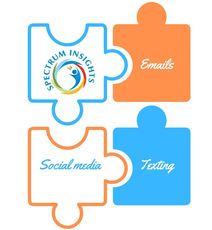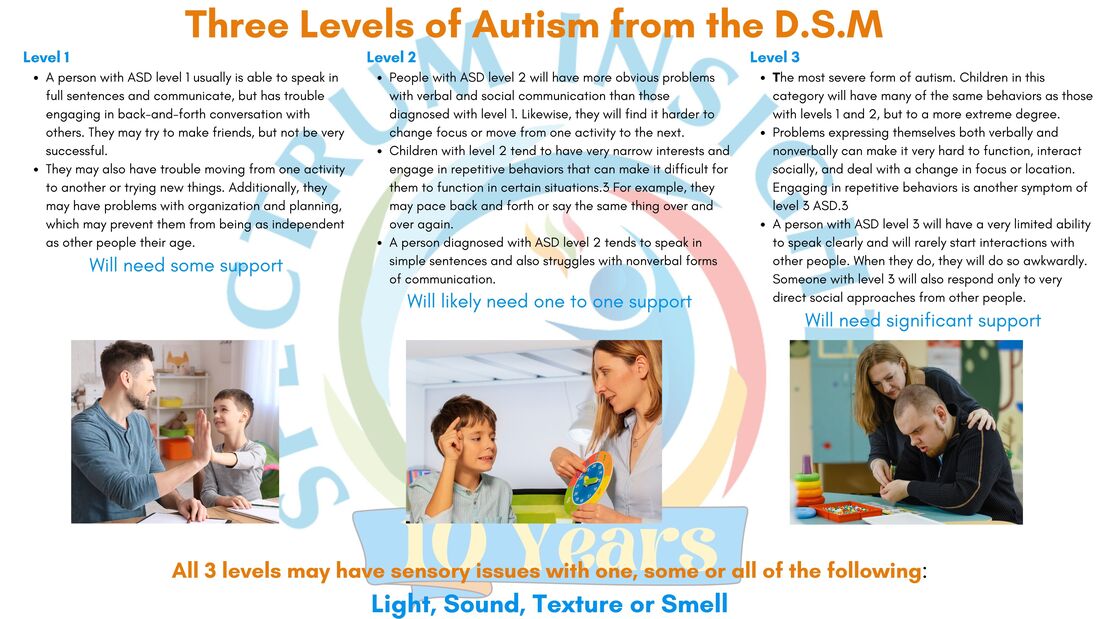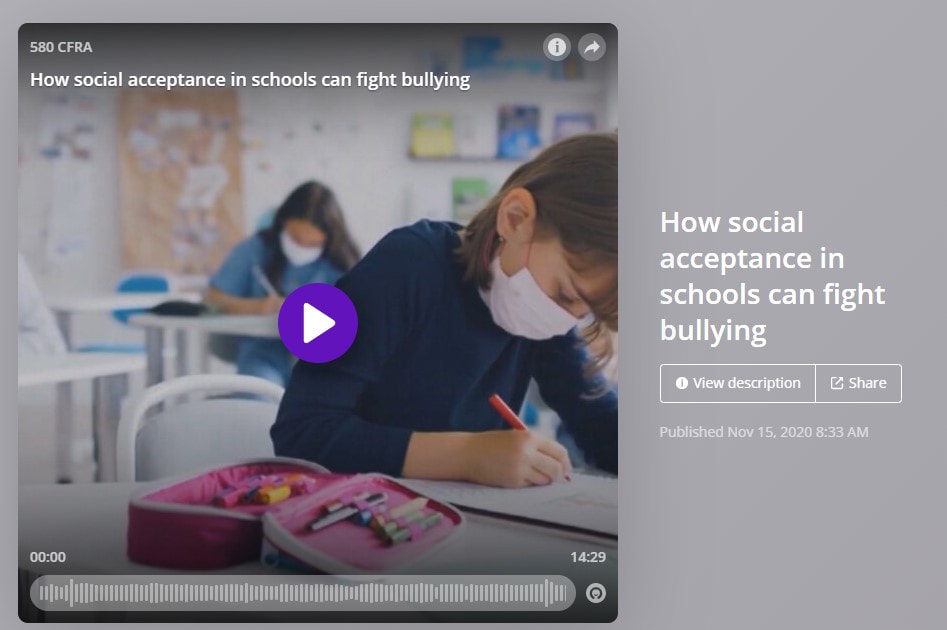Emailing, Texting and Social Media
for Youth on the Spectrum

Digital communication is still under the "Social Skills" umbrella. People look for feedback when speaking to each other, thus the emphasis on good listening skills. We need to demonstrate we heard and understood what was said. Ideally humans are looking to share experiences or tell our stories and getting input from others helps us process our experiences. Emails, texting and social media are smaller versions of personal stories and in no way replace personal interactions but they are still part of our social experiences.
Emails:
Emails almost always require a reply and a timely one. Generally we are expected to reply to emails as soon as they are received. Waiting too long to reply may confuse someone or cause them to feel they are being ignored. Not replying is also called "ghosting", it's extremely rude. People with social Anxiety have a harder time when emails or texts are not replied to. You may just forgotten but your socially anxious friend is coming up w/ all sorts of reasons why a reply was not sent, most likely blaming themselves for an imaginary slight. Do your friends a favor, reply and dont leave them hanging! Alternatively you may miss out on important opportunities or required information by not checking your email daily. As you get older, school, work and your social life will require a great deal of emails.
A simple trick to help yourself or someone you love reply to emails.
Set aside time each day to check your computer or phone for messages and reply to each one in turn. Morning and evening are often good times. This will help you develop a habit and also keep you focused on a single task w/ minimal distractions. Most people are accustomed to immediate replies. Ideally we can easily reply via our phones or a PC as we normally have easy access to them. When I am able, I reply right away and sure to read and re read the email to in order to address it correctly, that also means answering ALL questions asked.
People will be confused when an email is not replied to correctly.
When it comes to work you MUST reply in a timely way and be certain to address every question asked.
For the less social of us, this can be a lot easier than speaking in person as there are fewer nuances to interpret, a question or point is made and you must address it. Literally zero guesswork.
Personal emails may be challenging if there is lot of personal information, this could ewquire some decoding or reading between the lines. Work and school emails will be easier to reply to, personal emails may have more emotion tied to them. Just remember one thing for personal emails. Essentially the person emailing wants your feedback and that can be in form of advice or just replying so they know their message was heard and their story was received. Silence is most frustrating for anyone who shares personal information, they are looking for your feedback, so reply, it will make the other person feel as they have been heard. It’s like a conversation but a lot easier as you can take some time to formulate your answer, just dont take days to do it!
Some of you will encounter procrastination if the questions are too hard. You may opt for more time by replying w/ a simple, “Got your message, i’ll reply back in a day”. This tells the person that you received their message and when they will hear from you.
I think the largest challenge for some w/ ASD, they do not have their phones or PC’s properly configured to check emails nor have notifications on. This is where extra support comes in. A parent, caregiver, relative or friend may need to help set up devices so emailing is easy. Our Moving Forward leader, Julie Bode told me, set up times to email your child or client and have them practice replying to you. It can start off very simply:
- pick a time of day to email and they get in the practice of checking devices for messages.
- Keep the exchange simple to start. It could be very simple “if you want dessert tonight, please reply “yes” to this email.”
- Making it goal or reward oriented may be the carrot they need.
For the more social media savvy bunch, i've seen students and adults not on the spectrum, have challenges communicating. Especially when it comes to work emails, appointments or personal questions. We could all use some reminders oof correct social etiquette. I have been guilty of the above, but normally it is because I am overwhelmed with emails and do not answer them in order they arrived. Occasionally I am overwhelmed with a task and will put off replies or followups as I am still processing details...happens to the best of us. So allow yourself some slack for occasional mistakes.
The following are some tips for emails, texting and social media. It is a a good idea to go over the following with the person learning to improve their digital communication. You may want to add your own details or extrapolate more.
The best teacher is experience, so get those phones set up to receive emails, ensure notifications are turned on and get practicing!

- Answer each email in turn, reply to ALL the questions asked.
- If unsure, ask the sender for clarification. Or read the email with a loved one, they may help you better decode it and organize your thoughts into a proper reply.
- Answer in a timely way, w/ in the same day it is received or right away!
- Work or school related emails normally take priority
- Never answer an email when angry. In those rare cases, its best to wait several hours. Its possible you mis read the email or need some to time to evaluate how you will reply. And angry email can cause a rift with friends and affect your job in negative ways.
Be as detailed as possible:
- Include links to google maps if you are meeting somewhere
- Ensure the address is also typed and any details that may help the person find the location added.
- Indicate the times and dates
- Give as much information as possible when writing an email
- Highlight parts your want Your reader to pay attention to
- Use bullet points to put emphasis on important parts
Texting is less formal and meant for friends and family. We do not normally text our teachers or boss. Try not to text people you just met. Texting is like a private club, usually you need to be invited first.
- A text is short. If you need to write more, email call or speak in person
- Texts can easily be misunderstood. Speaking in person is always preferred for clarity
- If your boss gives permission, then texting can be used for very short pieces of information. “I will be 5 min late”. “The project is completed and on your desk”. Never gossip!
- Texting is normally fun and informal reserved for intimate friends and family. send pics, gifs or funny memes. Share times you are meeting or locations, links to articles or videos.
- Texting never replaces one on one conversations, save greater details for when you meet in person!

- If a friend posts on social media, it is polite to indicate you saw the post.
- It is even more polite to reply, often this is to show support for something they have done or agree to something they shared.
- Sharing their post is a compliment especially if it is a related to something they are trying to promote.
- It is polite to ask if you can share their post. Some people only share information with in a private social network. Sharing will put their story out there and they may not like that. Ask first.
- If your friend or family has a business, ALWAYS like, comment or share their posts. It helps their small business grow even if it is not of personal interest to you. They will appreciate your support.
- We use social media to stay in touch with people we do not see often. If you post, people want to see what you have been doing, share in your accomplishments and see photos. This is where you can share some of your opinions, link to videos, music or personal interests. It helps people get to know you better and you them.
- Pay attention to what they share, this is how you will learn about your peers and family. Future small talk will be a lot easier if you pay attention to their likes!





